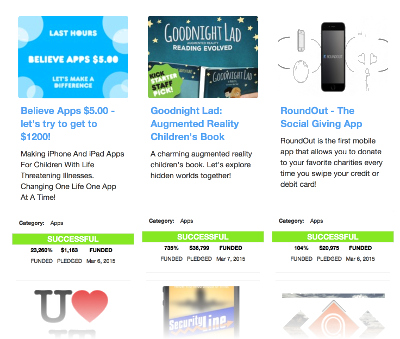
I have an idea for a mobile app development project and I am looking for a 50% partner. All you have to do is develop the app.
Every so often I get a proposal like the above, for me to develop a mobile app for free, on a “partnership” basis. The result is almost always a polite no.
Why don’t mobile app developers accept such offers?
The reason is the asymmetric timing of the effort.
In a normal partnership deal, such as say building a house, both partners contribute effort at roughly the same pace. Both partners start by putting a big downpayment of money into the deal, both partners, if they have building skills, contribute effort at the same time. Both partners have as much to lose as each other, if the project does not work out.
A mobile app development project is different. You have to develop the mobile app, before you can sell it. When someone proposes I come onboard as a partner, what they are really proposing is that I should sink a few hundred to many thousands of hours of effort into building the app, then they will do their part – marketing the app.
The reason mobile app development is different to building a house with a partner, is the work of both partners is not performed at the same time. The mobile app developer has to finish their job first. The mobile app developer has no way of knowing in advance whether their marketing partner will pull their weight – will match the effort the developer made to create the mobile app.
The mobile developer’s job, developing the mobile app, is complete before their partner starts their job of marketing the finished mobile app. If the marketing partner gives up without making a real effort, the developer is stuffed – they have lost all the time they spent developing the mobile app. Worse, if the developer now makes an effort to market the app, because their marketing partner let them down, the unreliable marketing partner will still expect a share of the profit.
I can demonstrate my mobile app development skills – what can you do to demonstrate your mobile app marketing ability?
There is a step you can take which demonstrates your ability to market your mobile app development idea: raise some cash.
If you mobile app proposal is a good idea, and you do a skilful job of marketing your idea, you will successfully raise the cash – which you can use to pay your mobile app developer. Raising cash for a mobile app project is an application of marketing skill.
How can you raise cash for a mobile app development project? One way is to use crowdsourcing – to promote your project on a website like Kickstarter, to attract funding for your idea.
Click here to see a list of recent mobile app project proposals, which received substantial funding from Kickstarter
What if someone tries to steal my idea?
A lot of people who want to develop a mobile app are worried that if they try to raise cash, by telling everyone about their idea, then someone will steal their idea. Putting the idea on Kickstarter is telling the world – how do you prevent someone from cashing in on your intellectual effort?
The answer in my experience, is developing a successful mobile app is a lot more than an idea. How many times have you had a terrific idea, told yourself “wow, I must act on this idea” – then done nothing? A mobile app starts as an idea, but that idea has to be nurtured – it has to be fleshed out, developed, moved from concept to design to funding to construction to marketing to success – a lot of effort.
I’m not saying stealing ideas doesn’t happen – there is always a risk someone will see your idea, decide they like it, and make the effort required to bring your idea to completion, before you have to chance to fulfil your goal. But people who want to steal the ideas of others, effort is usually something they are trying to avoid.
If you don’t raise the money for your mobile app development dream, it may never happen – or worse, you may eventually see someone else build your dream mobile app, and live your dream if it succeeds. Crowdsourcing, telling people about your idea, is a risk – but the bigger risk is surely inaction, the risk that you never find the capital to fulfil your ambition.
Are there other sources of funding I can consider?
Another method of raising cash for a mobile app project is to borrow the money. I have business associates who can provide loans for developing mobile apps – in the last few years the credit and loans industry has woken up to the possibilities of providing funding for people who want to develop mobile apps. You will still have to explain your idea to the loans company – but this approach avoids the need to tell the world about your idea. The downside is you are essentially funding the development effort yourself, with the help of a loan. As with any other credit scenario, make sure you can afford to repay any money you borrow. Some mobile apps make people rich beyond their wildest dreams – but some don’t. Mobile app development is high risk, high reward.
Are there any circumstances under which you would consider a partnership?
I’m happy to talk about your proposal – helping people find a way to fulfil their mobile app dream is what I do. I can imagine some possible circumstances under which I might agree to a partnership, but they all involve some sort of guarantee that my coding effort will be rewarded. Of course, we could just keep it simple – you could pay me for my time.
If you would like to discuss your mobile app development project, and methods by which it could be financed, please contact me.


